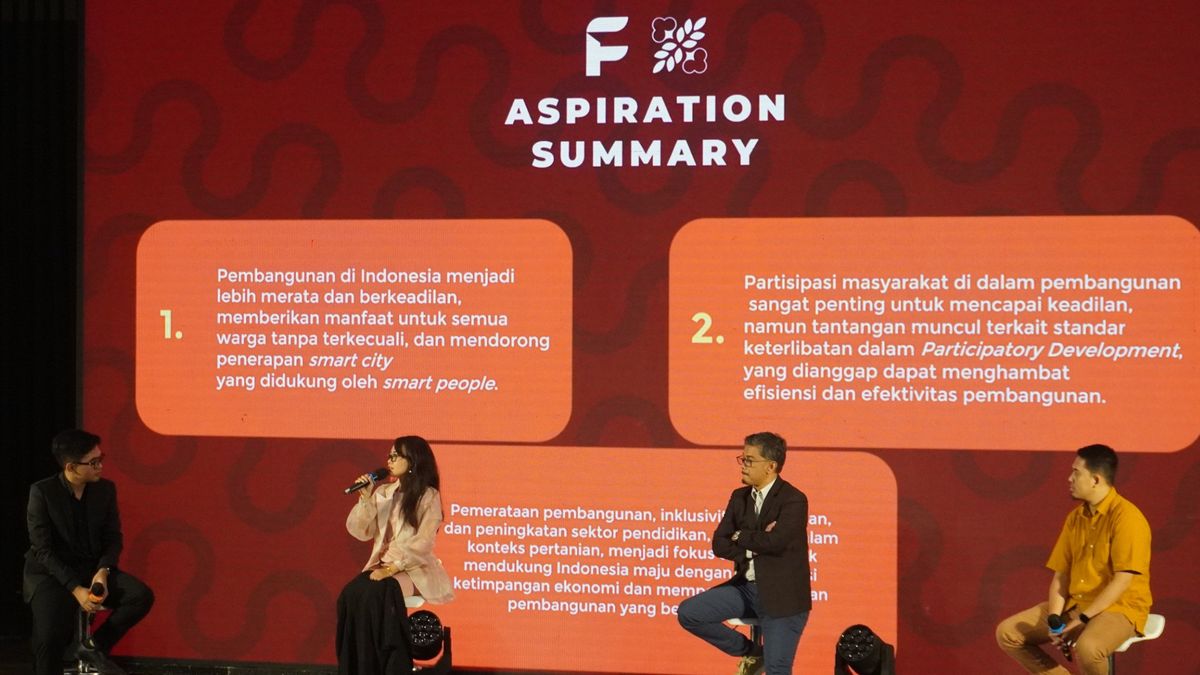JAKARTA - A number of academics and 500 students dissect the success of the Jakarta city of collaboration as a global city. According to sources, the success of the Jakarta City Collaboration under the leadership of Anies Baswedan has made the capital city of the archipelago (IKN) increasingly irrelevant.
Singaporean Urban Sociology Expert Nanyang Technological University (NTU), Prof Sulfikar Amir said the government's goal of building IKN for equitable development was a way of thinking.
"The equitable growth is not at all determined by the location of the capital. You can see that the capital city of the United States in Washington DC is on the east coast, but California which is far from the capital city is the richest state. Meanwhile, the poorest state is West Virginia which is close to the capital, which is only 2 hours from Washington DC," said Sulfikar in the study. Generale IDN Future at the Master Management of Gadjah Mada University (UGM), Friday 17 November.
Sulfikar emphasized that the relocation of the capital city in the name of equitable development is a project that does not have a technocratic basis and calculation defect. In addition, the reason for moving the capital city is because Jakarta's social-economic burden is considered unstoppable, it is irrelevant because Jakarta can still be addressed with collaborative approaches and governance.
"Jakarta has undergone significant changes in the last 10-15 years, especially under the leadership of Anies Baswedan. This means that the Jakarta problem can be resolved. Jakarta is a process that gives us optimism that Indonesian cities can be addressed. So the equitable development should not be built in 1 city but 18 big cities throughout Indonesia," said Sulfikar.
Meanwhile, UGM City Planning Expert, Dr. Tri Mulyani Sunarharum, the City of Collaboration needs to be realized on a national scale, although there are many challenges to make it happen.
اقرأ أيضا:
"In the government, the challenge is that working is still a sectoral ego, between governments at the city/district level with provinces and nationals. There must be a collaborative climate that allows for two-way dialogue, not dominated by top down decisions but also bottom-up, and cross-sectoral," said Mulyani.
According to him, the collaborative process can work well when the government gains public trust, and the government wants to trust the public.
Sulfikar Amir likens cities to growing organisms, absorbing resources, carrying out production processes and then dying.
"There are cities that live and die, there are cities that have not had time to live and are dead," said Sulfikar.
In line with Sulfikar, Director of the RUJAK Center for Urban Studies, Elisa Sutanudjaja said that IKN does not reflect the needs of future cities.
"IKN does not reflect the city of the future, it is just a collection of buildings without humans, it will repeat the old mistake of urban development in Indonesia in its old decade. IKN cannot be a city that can be imitated by other cities in Indonesia," said Elisa.
The English, Chinese, Japanese, Arabic, and French versions are automatically generated by the AI. So there may still be inaccuracies in translating, please always see Indonesian as our main language. (system supported by DigitalSiber.id)











